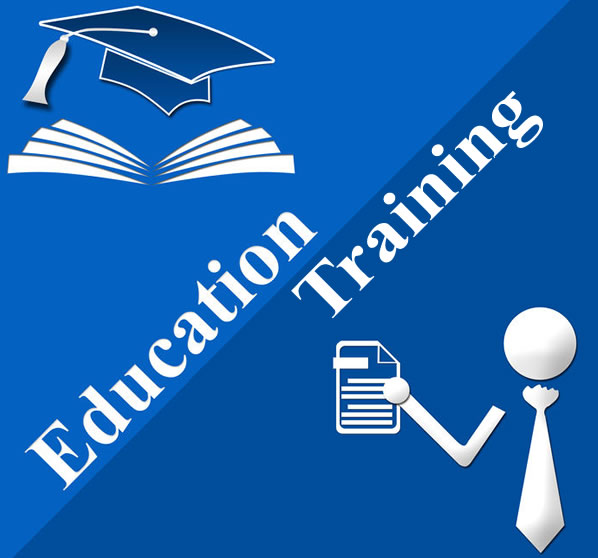What Is The Difference Between Training And Education?

Training is a burgeoning field and an important tool for any workforce. This is not only true in the oil and gas industry, but in every industry. Companies want their workforces to be safer, more efficient, and more prepared than ever before, and they realize the need for effective training in order to achieve these goals. Whenever the workforce grows, the company implements a new initiative, or disaster strikes, people point to the need for training. New employees need to be trained. Current employees should be retrained. Former employees leave because of a lack of training.
But isn’t training just another word for education? And aren’t employees already educated before they are hired?
To answer these questions, we simply need to refer to the definitions of these terms. Education is defined by Merriam-Webster as the process of gaining knowledge, skill, and development from study or training. Training, on the other hand, is defined by the Cambridge English Dictionary as the process of learning the skills one needs to do a particular job or activity. As is obvious from these definitions, while education and training are absolutely related, they are by no means the same.
Education refers to the acquisition of broad knowledge and skills, typically within a classroom or other educational environment. The skills and knowledge acquired through education tend to be more theoretical and allow students to develop reasoning and judgment surrounding broad topics. Education typically occurs on a more protracted timeline, over the course of a semester or, in some cases, over multiple years. Additionally, education is typically sought out and paid for by a student in the hopes of securing future employment or advancing along a career path.
Training refers to the acquisition of specific and applied knowledge and skills. Training can occur in a variety of settings, including within a classroom, but frequently training takes place “on the job” or “in the field.” The purpose of training is to improve performance and productivity among employees, typically with a focus on one set of skills. Training usually occurs after employment has already been secured, and is usually mandated, provided by, and funded by one’s employer. Although some training courses can last for multiple weeks, training courses are usually of a much shorter duration than educational courses due to the fact that training encompasses more specific and focused topics.
To put it simply, training is a much more specialized form of education. It can fall under the umbrella of education as both training and education focus on the acquisition of knowledge, but training is much more task-oriented, and skills based.
So, you may be wondering, why is continued training necessary within the workforce? Can’t employees be trained once, educated once on a particular topic, and then perform effectively?
The answer is an emphatic NO!
Training is necessary because the workplace is ever-changing. Best practices within any field or industry constantly change and evolve, and the workforce must be enabled to evolve with these changes. Although a company’s employees may be well-educated, very few employees come to a company already well-trained, and those who are well-trained may be trained according to a different company’s standards and culture. And the fact of the matter is, whatever knowledge employees may have acquired throughout the course of their education can quickly become outdated.
In order to ensure that best practices are being followed, employees are on the same page, and your workforce is as safe and efficient as it possibly can be, training must be a priority. Training can only be effective when it is both an investment and a commitment made by the company. Training is a promise to the employees and the community that your company is doing all that it can to stay safe, up to date, and prepared for any situations that may arise.
Should you wish to contact the author, you may do so by posting a comment at the bottom of this blog. If you think your workforce could benefit from retraining or employing a new system of training, click the link belor or call Becht Performance Group at 908-580-1119.



